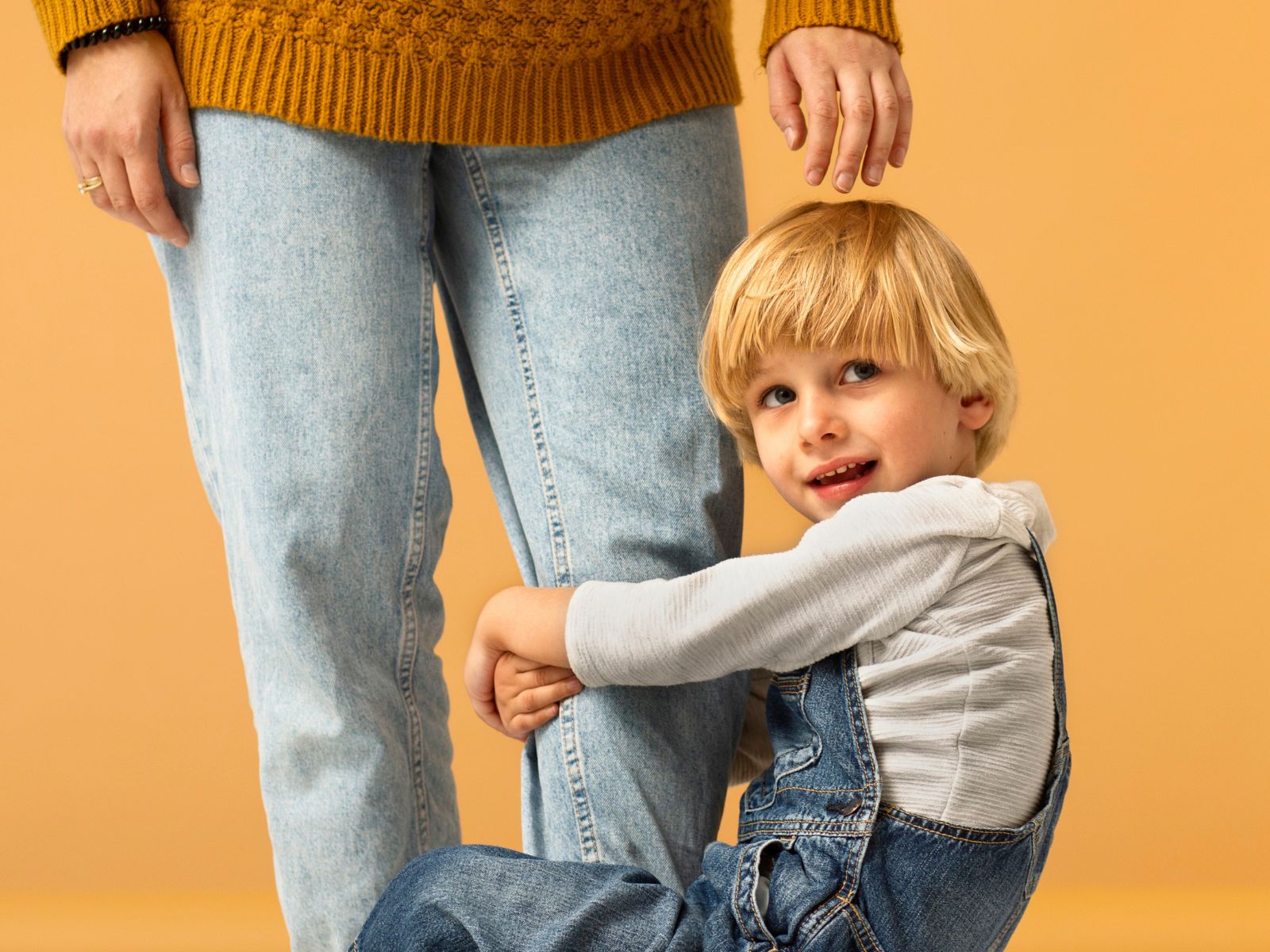Adaptation problems in 5- and 6-year-olds – why they occur and how to help?

Did you know that before your child can speak in full sentences, count, or read, they need to… move a lot?
Children of different ages, starting their adventure with nursery or preschool, may experience adaptive difficulties – this is a natural process associated with adjusting to a new environment full of changes, new people, and rules.
In this article, we will focus on the 5-6-year-olds, who often start their preschool education a little later – for various reasons, such as staying under the care of their parents for a longer time or moving to a new place. We will analyze why children in this age group may face adaptive difficulties and how to effectively support them to ensure a smooth and safe start in preschool.
Causes of Adaptive Disorders – What Triggers Adaptive Difficulties?
We already know that a child’s adaptation to preschool can be stressful, which can lead to adaptive difficulties. Adaptive disorders are nothing more than an emotional response to a new situation – in this case, the beginning of preschool or school education. The most common factors affecting adaptation in preschool include:
1. Separation from parents and strong emotional bonds
A child who has spent most of their time at home and has a strong emotional bond with their parents may experience significant stress. Separation anxiety often manifests as rebellion, frustration, crying, and even somatic symptoms like stomach aches or bedwetting.
Not all children at this age have developed the skills needed to function in a group. A new preschool group, different children, and rules may be hard to accept. If a child struggles in this area, it will be difficult for them to adapt to the new environment. For many, this is their first experience in a larger community.
3. Difficulty with emotion regulation
Children often cannot yet name the emotions they experience. As a result, aggression towards others, withdrawal, or impulsivity may occur. A child has difficulty coping with tension, which may lead to reactions that are not easily understood by adults.
4. Individual traits of the child
Temperament, past experiences, or adjustment to the new environment have a significant impact on how the child’s adaptation process unfolds. Some children are curious and open, while others are cautious and shy.

Preschool Adaptation – Definition and Importance
Preschool adaptation is the process of familiarizing the child with a new situation – the place, caregivers, and peer group. It can last from a few days to several weeks, and sometimes months. At KIDS&Co., we know how important a well-planned adaptation process is for the child. That’s why we offer a thoughtful adaptation program that helps both children and parents.
Also, see: Child Adaptation and Parent Adaptation in Preschool
Adaptation Activities in Preschool – How Do They Help?
In the first days at preschool, adaptation activities, integration games, and a calm introduction to the daily routine are crucial. This gives the child the chance to get familiar with the new situation, build relationships with the teacher and peers, and, most importantly, feel safe.
The child’s safety is the foundation of a successful preschool adaptation – only then can positive development and well-being be achieved.
How to Prepare Your Child for Preschool? Proven Adaptation Strategies
How can parents help their children adapt to preschool? Parents can do a lot to make the adaptation process easier for their children. Here are the most important adaptation strategies that support the process:
- Prepare the child in advance – talk about preschool, read books, visit the facility.
- Ensure a routine – a steady daily rhythm gives the child a sense of security.
- Talk about emotions – name feelings, don’t dismiss fears.
- Cooperate with the teachers – ask about the child’s behavior and work together to find solutions.
- Praise progress – every achievement, even the smallest, builds motivation.
When to See a Specialist?
Although the adaptation period can be difficult, sometimes the symptoms may indicate more serious issues. Signs of adaptive disorders that should be concerning include:
- sleep or appetite disturbances lasting several months,
- intensified symptoms of stress, anxiety, and adaptive depression,
- withdrawal, difficulty in relationships,
- serious emotional problems and adaptive disorders affecting daily functioning.
In such cases, it is worth considering a diagnosis of adaptive disorders by a specialist, such as a child psychologist.
Summary – How to Support a Child’s Adaptation?
Although adaptive difficulties in children are a natural phenomenon, they don’t have to be a cause for concern – if they are properly noticed and handled with empathy. It’s crucial to support the child’s adaptation through understanding, cooperation, and patience.
The adaptation process is a time of change, but also a significant step towards independence. Let’s give children time and trust – and they will show us how much they can achieve.
Learn more about the KIDS&Co. kindergarten and nursery program. Our facilities are located in the following cities:
- private preschools and nurseries in Warsaw
- private preschools and nurseries in Wrocław
- private preschools and nurseries in Gdańsk
- private preschools and nurseries in Łódź
- private preschools and nurseries in Kraków
- private preschools and nurseries in Katowice
- private preschools and nurseries in Poznań
- private preschools and nurseries in Suwałki
- private preschools and nurseries in Ostrów Mazowiecka
- And from September, also private preschool and nursery in Gdynia
Let’s meet!
We invite all of you to an individual meeting with the headteacher. This will be a great opportunity to find out about our educational offer, ask questions, and visit the kindergarten. You can book one visit for a given day.













